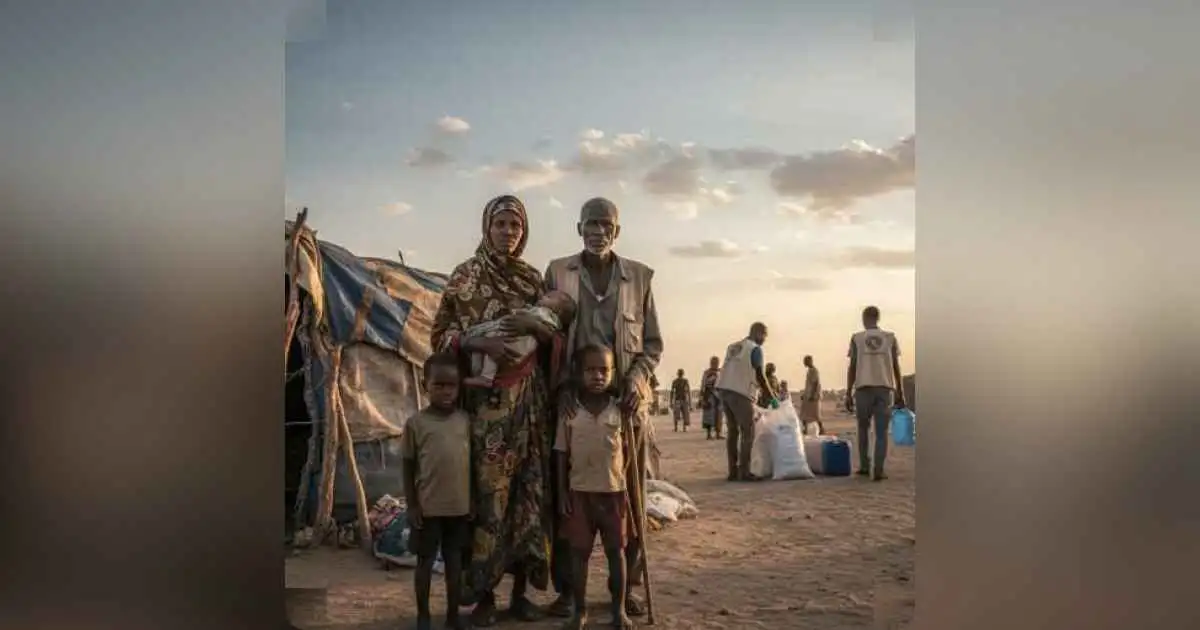Introduction: Hope Amid Hardship
As conflict and crisis continue to displace thousands across Sudan, families are struggling to survive often with little more than determination and faith. Whether you’ve been uprooted from your home in Khartoum, Darfur, or the Blue Nile region, or are taking refuge in another part of Sudan, finding food, safety, and medical care is a daily challenge.
This Guide is designed to serve as a lifeline a practical roadmap for displaced Sudanese families seeking help, safety, and stability amid chaos.
1. Securing Emergency Aid and Shelter
Accessing humanitarian support is the first and most urgent step. While conditions on the ground Change rapidly, there are several reliable sources of emergency assistance within Sudan:
-
- United Nations Agencies:
- UNHCR (United Nations Refugee Agency) provides temporary shelter, registration, and protection services.
- WFP (World Food Programme) distributes emergency food rations through local partners.
- Local and International NGOs:
- Organizations such as the Sudanese Red Crescent, Save the Children, and Médecins Sans Frontières (MSF) are active in multiple regions providing food, water, and basic medical support.
- Community Networks:
- In many towns and rural areas, community mosques, schools, and youth groups are working together to share food, transport, and safety information.
Tip: Always carry copies (or photos) of important documents such as IDs, family cards, and medical records when approaching aid centers.
2. Protecting Your Family’s Health
In crowded camps or temporary shelters, illness spreads quickly. Access to healthcare is limited, but there are vital precautions every family can take:
-
- Water and Hygiene:
- Boil or purify water whenever possible. Use chlorine tablets or filtering cloth if clean water isn’t available.
- Vaccinations:
- Seek mobile clinics or local health posts offering free vaccinations, especially for children under five.
- Malnutrition Prevention:
- Supplement basic meals with high-energy biscuits or fortified flour distributed by NGOs.
- Women’s Health and Safety:
- Women and girls face added risks. Always stay in groups, use well-lit routes, and contact local women’s protection groups if needed.
3. Staying Safe in Conflict Zones
When violence escalates, survival depends on quick, informed decisions. Here’s how to stay alert and prepared:
-
- Stay Updated:
- Listen to local radio (battery-powered or hand-crank models) for verified updates on safe routes and humanitarian corridors.
- Identify Safe Zones:
- Schools, religious centers, or UN compounds often serve as protection areas during attacks.
- Plan an Escape Route:
- Each family should identify a meeting point and a backup location in case of sudden evacuation.
- Avoid Dangerous Areas:
- Stay away from military installations, checkpoints, or crowded aid distribution points during unrest.
4. Accessing Financial and Food Support
Many families have lost access to banks or jobs. However, there are still options to receive support:
-
- Cash Assistance Programs:
- The World Food Programme and UNICEF run limited digital or voucher-based cash support for families registered with local partners.
- Mobile Money Transfers:
- If available, use mobile platforms (like MTN or Zain Wallet) to receive funds securely from relatives abroad.
- Food Distribution Centers:
- Contact local community leaders or aid hubs for updated food distribution schedules.
HowTo: Steps to Apply for Humanitarian Aid
-
- Visit the nearest Humanitarian Aid Commission (HAC) office or UN registration point.
- Provide your personal and family identification details.
- Complete a registration form and get a family card.
- Wait for SMS or paper notification about aid collection schedules.
- Collect food or cash aid at the designated center.
5. Staying Connected and Informed
Communication is crucial for survival. Even when networks are unstable:
-
- Use radio and community notice boards for verified updates.
- When possible, charge phones with solar panels or power banks.
- Join WhatsApp or Telegram groups run by trusted community coordinators for safety alerts.
- Avoid spreading rumors misinformation can endanger others.
6. Mental and Emotional Resilience
Displacement takes a toll not only on the body but also on the mind. Anxiety, grief, and fear are natural responses to trauma.
Here are small but powerful ways to cope:
-
- Talk with trusted family or faith leaders.
- Keep daily routines, even if simple (prayer, meal times, storytelling).
- Encourage children to play and draw it helps them express fear and regain a sense of normalcy.
- Seek mental health support from NGOs like International Medical Corps or Save the Children, which provide counselling in many camps.
7. Planning for the Future
Though survival is the priority today, keep records of your family’s journey and identity. These documents will be vital when peace returns and reconstruction begins.
If possible, take part in education programs for children or skills workshops for adults offered by humanitarian agencies they can open opportunities for the future.
Conclusion: You Are Not Alone
Amid destruction and displacement, your strength and courage are powerful acts of survival. Across Sudan, ordinary people are helping one another proving that solidarity can endure even in the darkest times.
Remember, each small step finding clean water, registering for aid, keeping your family together is part of Rebuilding hope. Help is out there, and your voice matters.
Frequently Asked Questions (FAQ)
1. Where can displaced families register for aid in Sudan?
You can register at the nearest UNHCR or HAC office. Local community leaders can guide you to recognized distribution centers.
2. What should I do if I lose my identification documents?
Contact the nearest administrative office or UN representative. They can help issue temporary family cards for accessing services.
3. How can I protect my family from waterborne diseases?
Boil or purify water, use chlorine tablets, and wash hands frequently with soap or ash.
4. Is there financial help available for displaced people?
Yes. Several NGOs and UN agencies provide cash transfers, vouchers, or food rations after registration.
5. How can I find out which areas are currently safe?
Follow updates from radio broadcasts, humanitarian groups, and verified social media channels used by local relief coordinators.




